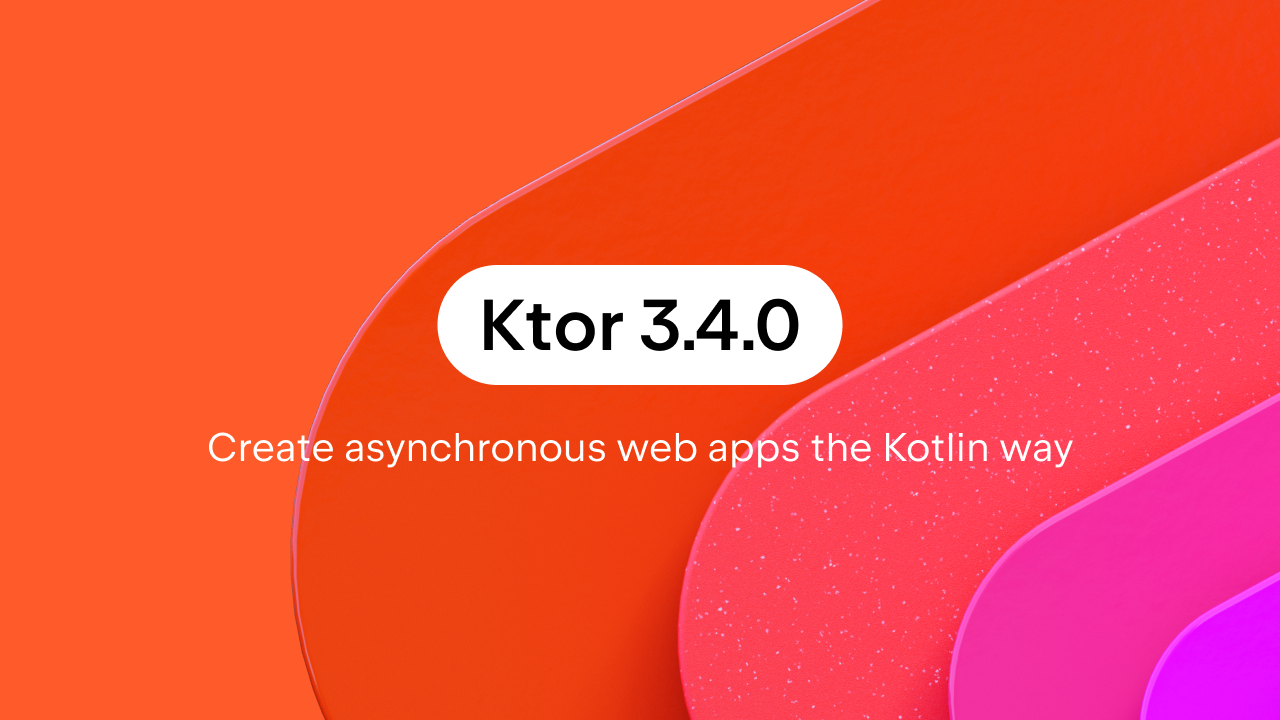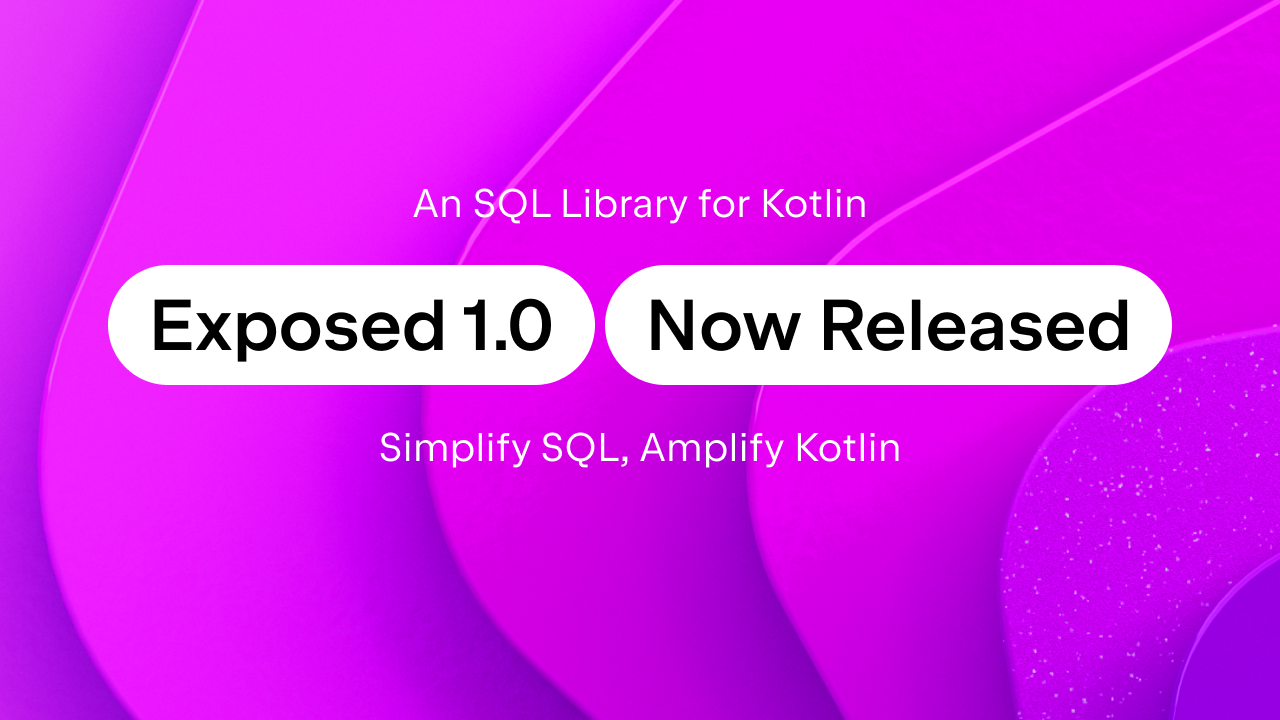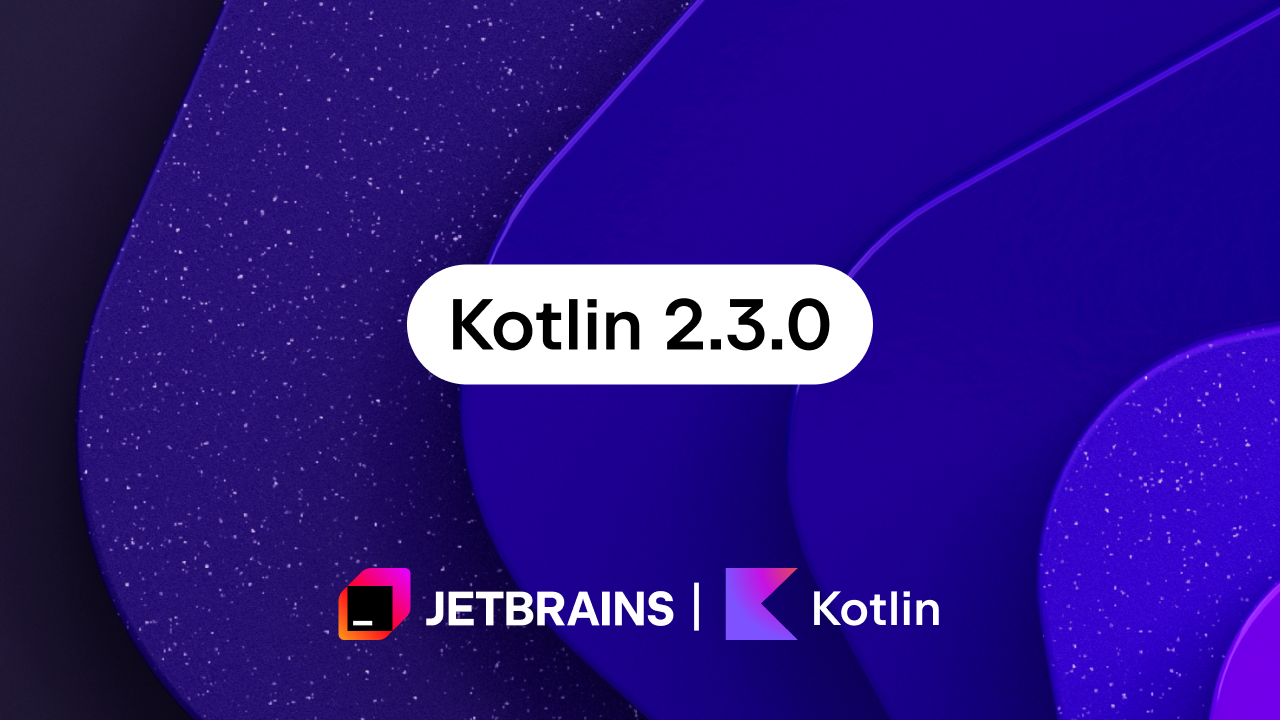Kotlin
A concise multiplatform language developed by JetBrains
Kotlin 1.0 Beta 4 is Out!
We are happy to announce Kotlin Beta 4, another step towards 1.0! We are now mostly focused on the infrastructure and future-proof changes. Full list of changes is available here. More details below.
It’s also time to let you know about what else we are going to do before 1.0.
Improved incremental compilation (Experimental)
We have rolled out a new precise algorithm for dependency detection that makes Kotlin’s incremental compilation much faster. It’s still experimental, but works pretty well for our use cases already. To try it out:
Settings | Build, Execution, Deployment | Compiler | Kotlin Compiler | Enable precise incremental compilation (experimental)
Soon: same incremental compilation support is coming to Gradle! Stay tuned.
Language
Some highlights from the full list of changes.
Changes in overload resolution
Due to a fix in the overload resolution algorithm, Kotlin now treats SAM-converted Java functions more like members (they used to behave like extensions before). This fix is important, because otherwise many cases were interpreted in cumbersome ways by the compiler.
Unfortunately, there’s at least one relatively common case that has broken as a result. The fix is very easy, though. Now the compiler complains about file.listFiles { it.name == "..." }.
The reason is rather complicated:
- there are three overloads of
listFilesinjava.io.File - two of them take a SAM-interface, which we convert so that they can take a lambda
- so, when a parameterless lambda is passed in we don’t know which one should be chosen
- it worked before, because an old library extension function (dating back to the pre-SAM era) was selected instead of a SAM-converted member.
The workaround is simple, just specify the parameter, e.g.:
file.listFiles { it -> ... }
Properties can be used as parameterless function objects
Example: in Kotlin String::length is a property, not a function, but it’s convenient to be able to use it where a function is expected, e.g.
val lengths = strs.map(String::length)
So, we now allow this. In other words, whenever some API expects a function of type (R) -> T we can use a reference to a property of R whose return type is T.
Reserving keywords for future use
We are planning to add new features in the future releases of Kotlin, so we decided to reserve the necessary keywords in advance. We understand that one can’t predict all of the future, but here’s our best guess (no detailed design for the future features is available yet, but we’ll do our best to make them as useful as can be):
yieldis reserved as a keywordsealedis reserved in front of “when“typeofis reserved as a keyword. In JS, usejsTypeOf()asyncis reserved in front of “{” and “fun“
So, now, instead of async {...} we’ll have to say async () {...}. We understand that it’s not as clean, but we didn’t find a better option. Code completion will insert () automatically.
Code Cleanup will help you migrate existing code.
Java Wildcards
There were issues with how Kotlin translated variant types, e.g. whether a List<Foo> should be List<? extends Foo> in Java or simply List<Foo>. Subtleties details aside, we did the following:
- By default, we do not generate wildcards in return types and where they make no sense
- When a wildcard is needed, one can enforce its presence with a type annotation:
List<@JvmWildcard String>is alwaysList<? extends String>in Java - When we need to get rid of a wildcards, we can use
@JvmSuppressWildcards(this can be used on a type or any declaration that contains it)
Examples:
fun foo(l: List<String>) // in Java: List<String> (String is final) fun foo(l: List<@JvmWildcard String>) // in Java: List<? extends String> interface Open fun bar(p: List<Open>) // in Java: List<? extends Open> (Open is not final) @JvmSuppressWildcards fun bar(p: List<Open>) // in Java: List<Open>
NOTE: this concerns not only collections, but all types that involve declaration-site variance
Library changes
We are cleaning up the Standard Library, and this includes some repackaging:
- The
kotlin.testpackage has been moved to a separate jar-file:kotlin-test.jar. A quick-fix is available in the IDE to add this dependency automatically. - In preparation to rearranging packages in the Standard Library, we have created the new packages and copied all functions to them. The old functions are kept for binary compatibility. No migration needed for Kotlin code, Code Cleanup is available for Java code.
Later, we are planning to extract one more JAR from the library: it will contain array utilities that are infrequently used, so we’d like to keep them outside the main JAR to reduce its size.
Some more highlights:
Kotlin’s Int::class may correspond to Java’s int.class or Integer.class in different contexts (and it’s justified). To facilitate use cases when a specific one of the two is needed, we have introduced two properties:
Int::class.javaPrimitiveTypereturnsInt.classInt::class.javaObjectTypereturnsInteger.class
Also, we can now say things like IntArray(5) { it * 3 }, i.e. create initialized primitive arrays.
Future change: meaning of null in collections
The later versions of the JDK are making collections more and more null-intolerant. For example, here’s what the JavaDoc says about java.util.Map.computeIfAbsent:
If the specified key is not already associated with a value (or is mapped to null), attempts to compute its value using the given mapping function and enters it into this map unless null.
These contracts are intrinsic to atomicity properties of such operations, so we decided that we have to meet them too, otherwise we won’t be able to guarantee proper behavior for Kotlin’s extension functions when they operate on null-free concurrent collections. So, we are going to change the behavior of getOrPut and other such functions so that they treat null value the same as the value was not present.
To update your code, follow the recommendations given in deprecation warnings.
What’s new in the IDE
- Quick-fix for renaming unresolved references was added. It’s handy for adjusting symbols’ names when pasting some code to a different context:

-
Now the IDE lets you create functions from unresolved callable references:

-
Go to TestandCreate Testactions now work for top-level functions:

-
Convert anonymous function to lambda expression intention has been added

-
Go to classandSearch everywherenow show Kotlin built-in types

-
In debugger: option ‘Skip simple getters’ is now supported, which means that debugger won’t stop at properties defined in constructors, properties without getters or whose getters that return the value of some field
What’s next
After the Beta period is over, there will an RC and then 1.0.
We would really like to make sure that no code compiled with pre-release versions of Kotlin are kept around after 1.0, so the RC compiler will force recompilation of all the old code. We will coordinate with library maintainers outside JetBrains to make sure that all the widely-used libraries will be recompiled in time.
We’ll also take the opportunity to remove some legacy at this point:
- remove all the deprecations that we have accumulated in the process of evolving our libraries,
- remove all the deprecations from the generated code (you might not have heard of those, but they exist!),
- get rid of some legacy bytecode peculiarities that were found during the beta,
- move some of the stdlib code around so that the packages there have more structure.
After that point, the only compatible changes to the standard library are deprecations and additions (this does not include reflection APIs). We are running an open review for the library API to make sure we haven’t missed anything important.
Merry Kotlin! :)
Subscribe to Kotlin Blog updates








